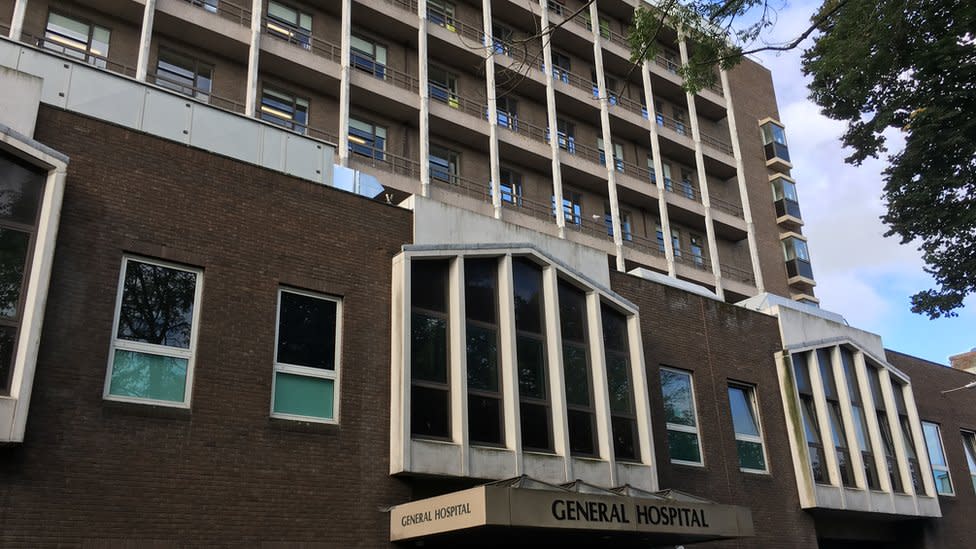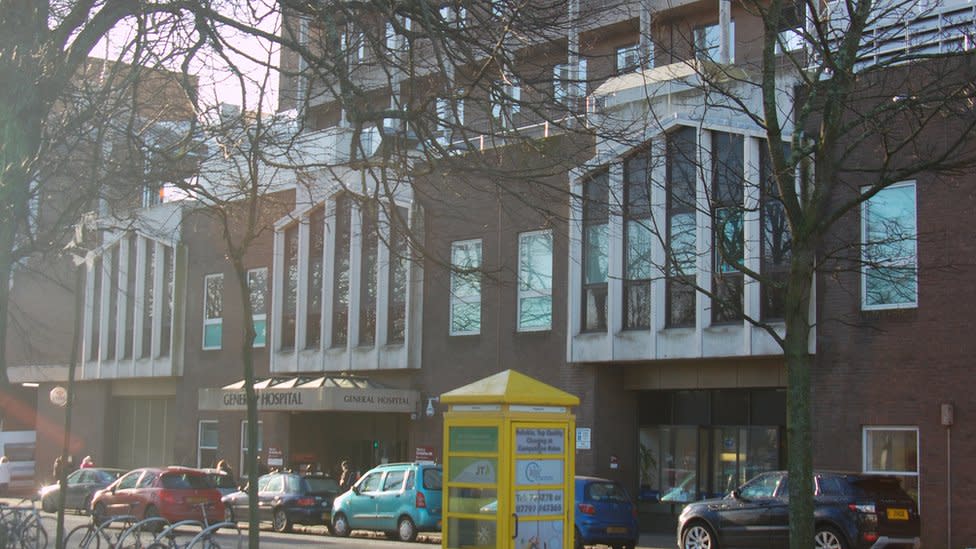Midwives could have 'changed' birth, baby inquest hears

The "whole course of events" around the birth of a one-month-old baby in Jersey "could have changed" if midwives had monitored her adequately, an inquest has heard.
Amelia Clyde-Smith suffered brain damage and died aged 33 days.
A UK medical expert told the inquest "proper monitoring" of Amelia's heart rate would have meant "more hands on board" for her birth.
The need for a doctor "would have been obvious", she said.
The inquest previously heard Amelia was delivered at Jersey General Hospital by midwives without an obstetrician present.
Dr Reeba Oliver, a consultant obstetrician, appeared at the hearing by video link on Wednesday.
She told the coroner she would have been "concerned" by the first measurements of Amelia's heart rate the night she was born and would have continued monitoring her until delivery.
The inquest heard this was something the midwives attending to her mother, Ewelina Clyde-Smith, did not do.

Dr Oliver was joined on the video link by another UK expert, Prof Kevin Dalton and they gave evidence at the inquest together.
Prof Dalton said the readings of Amelia's heart rate about three hours before she was born were "sub-optimal".
Amelia was born at 06:00 BST on 19 August 2018.
Prof Dalton said at 02:50 the monitor lost contact with Amelia's heart rate and was likely measuring her mother's heart rate instead.
He said this was something the midwife attending to Mrs Clyde-Smith "should have realised".
The signs were "pretty obvious", he said.
Dr Oliver also said the midwife should have made "some effort" to use a different method of measuring Amelia's heart rate, after the first approach did not work.
If this had been done, she said, the midwife and her supervisor would have noticed Amelia's heart rate earlier and "would have sought medical help... that would have made a difference".
Mrs Clyde-Smith's midwife, Tambu Muoni, told the inquest on Monday she believed the readings at that time were "good enough and was OK".
Earlier, the inquest heard another midwife visited Mrs Clyde-Smith less than an hour before Amelia was born and did not visually check the foetal heart rate monitor.
Dr Oliver said that "raises quite a lot of concerns".
On Thursday, a midwifery expert, Anne Carvalho, disagreed with Dr Oliver saying the initial reading was a cause for concern and monitoring should have continued until delivery.
She said she did not "think a reasonable midwife would continue" the monitoring.
"I feel quite strongly this is a normal trace," she said.
Although she also said "it's very clear" a different method of monitoring should have been used by 03:00.
'Consider' gross negligence
After the Ms Carvalho, Jersey's medical director for health appeared as a witness.
Patrick Armstrong told the coroner the health department was carrying out an investigation into why management staff did not address a supervising midwife leaving the ward the night before Amelia died.
He also said the investigation would look at why information about this incident was left out of midwives' statements about Amelia's birth.
The coroner said she would "be in a position to return [her] findings" on Friday.
Bridget Dolan KC said she would "consider" gross negligence as part of her conclusions.
Follow BBC Jersey on Twitter and Facebook. Send your story ideas to channel.islands@bbc.co.uk.
